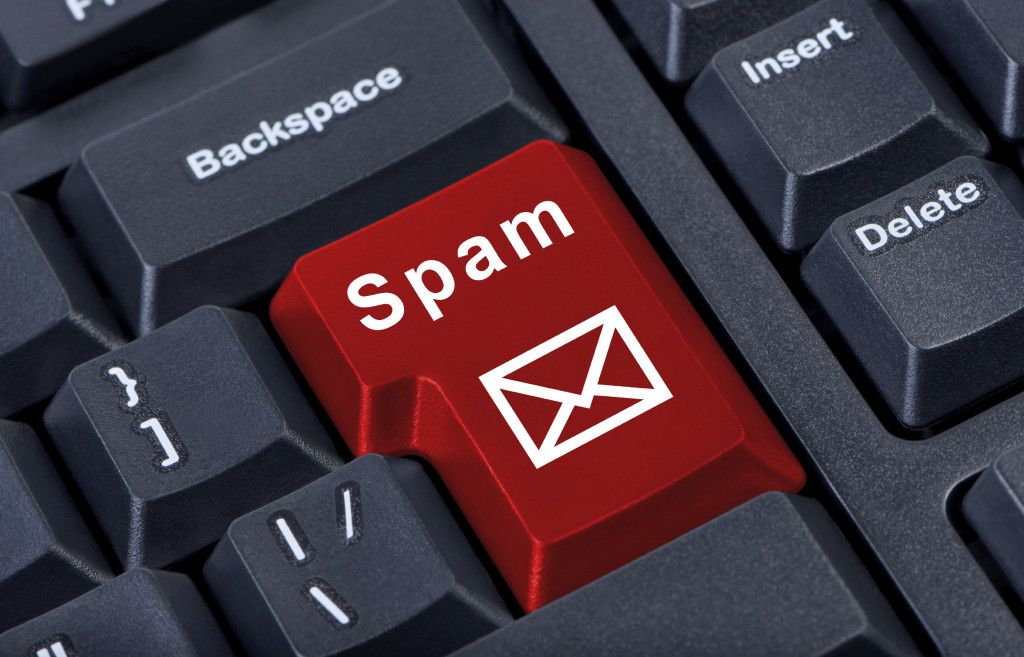We’ve all done it. We’ve all looked in our inbox and seen an email we weren’t expecting and clicked open, only to find it’s full of adverts or Nigerian princes offering us millions of dollars. Hoaxes like these are often called forms of phishing. Hackers send out mass emails to as many addresses as possible knowing that a small percentage of people will fall for the scam.
Over the last few years, spam email has become more and more sophisticated, appearing as letters from our banks, online shops and even government agencies. The best outcome is that it’s wasted our time and is deleted. The worst; financial and personal information is stolen as a virus works its way through our infected device. While easy to fall for, here are 5 things too look for to find out whether an email is spam:
1. Poor spelling and grammar
It’s basic, but true. Large companies that send out mass messages will have usually checked and double checked them for spelling mistakes and grammar – word processing programs do this automatically now too. If you receive mail that says it’s from the bank or any institution and it’s filled with mistakes, chances are it is spam.
2. Requests personal information
Any message you receive asking for your account number, answers to security questions or your password is definitely spam. It may look official, but no organization would ask for sensitive information over the internet. If you have any doubts about how real an email is, don’t send any information and always contact the company to double check. They need to know if someone is trying to break into their system too, so you’re doing them a favor as well as protecting yourself.
3. Threatens legal/penury actions
Some emails use threats and intimidation to try and trick money out of victims. The idea is to make you panic with a mixture of urgency and intimidation – PAY NOW OR GET TOWED! makes you sit up, but it’s almost always fake.
If a message makes unrealistic threats, it’s probably a scam. No matter how legitimate an email looks – and some scammers are very good at making emails appear as though they are generated by the actual company – the real business would have procedures in place for recovering money or property, and would not make ridiculous threats via email. Clever phishers don’t always pretend to be your bank or credit company either – they’ll pose as a collection agency or the IRS. Again, always double check on another channel – call the company, or email their customer support services direct, don’t reply to the suspect email.
4. False subject lines
Some spam emails have a false ‘Re’ or ‘Fwd’ coupled with a subject line like ‘Long time no talk‘ or ‘We should catch up’ to make you think you’ve been in contact before. This can be enough to make you open the email even if you don’t recognize the sender. Once you’ve opened it, it might not always be immediately obvious that it’s a hacker. Always check you know the sender before opening anything.
5. An answer to something you didn’t initiate
The best examples of this are those emails telling you you’ve won something in a contest you didn’t enter – usually high-end tech or vast sums of money. All you have to do is give your bank details or other personal information to collect your $5000 or free iPad…. They’re easier to spot, but a small percentage of people still send their data, making it lucrative for the spammer.
Remember:
Never click on a link in an email if it’s not from an email address you know and trust. If in doubt, don’t click; you can wind up downloading malware, spyware and viruses that impair or break your device.
Don’t open an email if the sender or subject line looks iffy. Spammers use email tracker software to know which target addresses open their messages; open one and get ten more, or drop straight into spam and shoot big holes in the spammer’s deliverability.
If you really owed the IRS thousands, would they email you? No legal document will be sent by email; court documents are served, and bills come through the mail.
If in doubt, phone the company or write to them. Never respond to a sketchy email!


